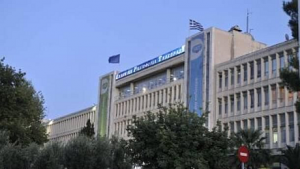
After more than 40 years of operation, DTVE is closing its doors and our website will no longer be updated daily. Thank you for all of your support.
EBU chief slams wider threat to public broadcasters of ERT case
 EBU president Jean-Paul Philippot has delivered his strongest condemnation to date of the Greek government’s decision to close public broadcaster ERT and has highlighted the wider threat to media freedom that he believes the case represents.
EBU president Jean-Paul Philippot has delivered his strongest condemnation to date of the Greek government’s decision to close public broadcaster ERT and has highlighted the wider threat to media freedom that he believes the case represents.
At a public meeting in Paris organised by Mediapart and Reporters Without Borders, Philippot said that the European Commission president José Manuel Barroso’s position on the closure had been at best “ambiguous”. He said EC vice-president Ollie Rehn’s spokesman had admitted that the international bodies monitoring Greece’s public finances had “recommended that slimming down measures be applied” in reference to the public broadcaster.
The EC earlier had issued a statement saying that the decision to close ERT had been taken “in full autonomy” and that the EC supported “ the role of public broadcasting as an integral part of European democracy”.
Philippot condemned the measures taken by Greece to prevent the Eurovision network’s retransmission of its satellite signal.
“We are now dealing with a manoeuvre that does not aim to build a new media body but, through all legal means and threats, to muzzle the journalists doing their job. This is not acceptable, and we are and will continue to fight this,” said Philippot. “Yesterday when we celebrated seeing a court ruling that gave back the airwaves, this ruling is clear, we learned of it, today we are slightly worried because the airwaves have not been returned to these professionals, with an increasingly obvious feeling that we have left behind the rule of law and moved into territory that looks like strong-arming. This is not acceptable.”
Referring to a suggestion by Hungarian commercial broadcaster RTL Klub that the Hungarian government should follow Greece and shut down public broadcaster MTV to save money, Philippot said that there was a growing danger that “the values of our society are becoming an adjustable variable for certain public policies”.
In a news comment on the Greek situation, RTL Klub had suggested that the Hungarian government follow suit and shut down the country’s public broadcaster, arguing that the HUF78 billion (€265 million) spent on the organisation annually was greater than the budget of its two main commercial rivals combined.


